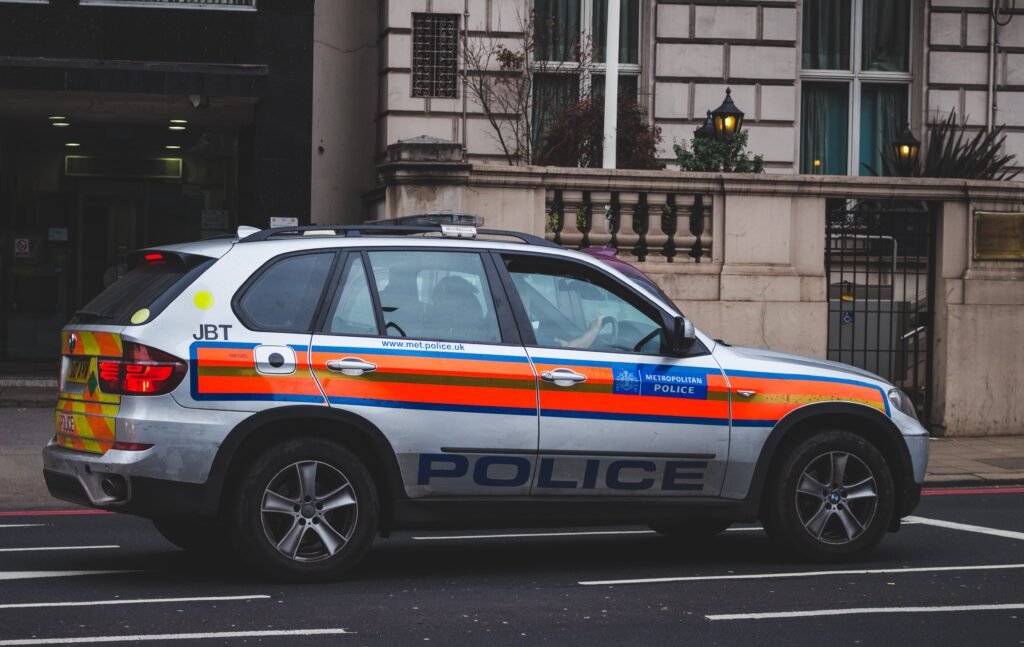Introduction
In our daily lives, we encounter various situations where we question the legality of certain actions.
From driving barefoot to collecting rainwater, there are many misconceptions about what is legal and what is not.
In this article, we will address some common queries and debunk the myths surrounding these topics. So, let’s dive in and explore the truth behind these frequently asked questions.
Is It Illegal to Drive Barefoot?

Driving barefoot is a topic that often sparks debate and confusion among motorists.
Many believe that it is illegal to drive without shoes, while others argue that it is perfectly legal. So, what is the truth?
Contrary to popular belief, it is not illegal to drive in the UK without shoes on.
The same applies to wearing flip-flops. However, there is a catch. While it is not against the law to drive barefoot or with flip-flops, you must be able to operate the controls safely.
If your feet are wet or you are unable to maintain proper control of the vehicle, you may be putting yourself and others at risk, which is illegal.
According to the Driving Standards Agency, suitable shoes are recommended for driving as they provide better braking force compared to bare feet.
It is important to choose footwear that has a sole no thicker than 10mm, provides adequate grip to prevent slipping off the pedals, and allows for proper ankle movement.
Heavy or restrictive footwear should be avoided to ensure optimal control over the vehicle.
While driving barefoot may not be illegal, it is advisable to drive with appropriate footwear to ensure your safety and the safety of others on the road.
Is It Illegal to Collect Rainwater?

The idea of collecting rainwater for personal use seems harmless and environmentally friendly.
However, there have been misconceptions about the legality of this practice. So, is it illegal to collect rainwater?
In the UK, it is generally legal to collect rainwater for personal use. Many homeowners use rainwater harvesting systems to reduce water consumption and conserve resources.
However, there are some regulations and considerations to keep in mind.
The legality of collecting rainwater may vary depending on the specific circumstances and location.
For instance, in areas with water scarcity or high demand, there may be restrictions on rainwater collection to ensure sufficient water supply for essential purposes.
Additionally, if you live in a rented property, you should consult your lease agreement or landlord to ensure that collecting rainwater is permitted.
It is important to note that the collected rainwater should not be used for purposes that may pose a risk to public health or violate any water quality standards.
It is always advisable to check with local authorities or environmental agencies to ensure compliance with any regulations or guidelines related to rainwater collection in your area.
Is It Illegal to Use Deposit for a Month’s Rent?

The issue of using a deposit to cover a month’s rent often arises in the context of rental agreements.
Some tenants may wonder whether it is legal for landlords to apply the security deposit towards the last month’s rent. So, what does the law say about this practice?
In the UK, it is generally not illegal for landlords to use the security deposit to cover the last month’s rent.
However, this practice is discouraged and may not be considered best practice in the rental industry.
The purpose of a security deposit is to protect the landlord against any damage or unpaid rent during the tenancy period.
It is important to note that landlords must adhere to certain legal obligations when handling security deposits.
They are required to protect the deposit in a government-approved scheme and provide the tenant with the necessary information about the scheme within a specific timeframe.
Additionally, landlords must follow the proper procedures for deducting any amounts from the deposit, such as providing an itemised list of deductions and evidence of expenses.
While using the deposit for a month’s rent may not be illegal, it is generally recommended for landlords and tenants to separate the security deposit from the last month’s rent to ensure clarity and transparency in the rental agreement.
Is It Illegal to Hit a Girl?

Violence is never the answer, regardless of the gender of the individuals involved.
The question of whether it is illegal to hit a girl implies a deeper concern about gender-based violence and equality under the law.
In the UK, assault is a criminal offence, regardless of the gender of the victim.
The law does not differentiate between hitting a girl or hitting a boy. Any act of physical violence against another person, regardless of their gender, is considered assault and is punishable under the law.
It is essential to promote a culture of respect, equality, and non-violence in all spheres of life.
Physical violence should never be justified or excused based on gender or any other factor.
If you are facing a situation involving violence or abuse, it is important to seek help from the appropriate authorities and support services.
Is It Illegal to Sleep in Your Car?

Sleeping in your car may seem like a convenient option for some individuals, especially during long journeys or when facing temporary accommodation challenges.
However, the legality of sleeping in your car depends on various factors and local regulations.
In the UK, there is no specific law that prohibits sleeping in your car.
However, there may be restrictions or bylaws in certain areas that prevent overnight parking or camping in public spaces or private properties without permission.
If you choose to sleep in your car, it is essential to be aware of any local regulations and respect the rights of property owners or authorities.
It is important to note that sleeping in your car can have safety implications, both for yourself and others.
If you are feeling tired or drowsy while driving, it is advisable to find a safe and appropriate place to rest, such as a designated rest area or a hotel.
Ensuring your own well-being and the safety of others on the road should always be a priority.
Is It Illegal to Drive with Headphones?

Listening to music or audio content while driving can be enjoyable and entertaining.
However, the use of headphones or earphones while driving raises concerns about safety and potential distractions. So, is it illegal to drive with headphones in the UK?
According to the UK Highway Code, drivers should not use headphones or earphones while driving, as they can impair hearing and distract the driver from the surrounding environment.
While it is not explicitly illegal to wear headphones while driving, doing so may be considered a breach of the law if it causes a distraction or affects the driver’s ability to operate the vehicle safely.
It is important to prioritise road safety and minimise distractions while driving.
If you wish to listen to music or audio content while driving, consider using hands-free options such as Bluetooth speakers or car audio systems that allow for safe and legal usage.
Is It Illegal to Burn Money?

The question of whether it is illegal to burn money often arises in discussions about the destruction or disposal of currency.
While it may seem like an odd question, burning money can have legal implications in certain circumstances.
In the UK, it is not explicitly illegal to burn money. However, there are provisions in the law that prohibit the intentional destruction or defacement of currency with the intention to defraud or deceive.
This includes actions such as counterfeiting money or altering banknotes to change their value.
The Currency and Banknotes Act of 1928 states that it is an offence to “mutilate, cut, deface, or destroy any banknote.”
However, this provision primarily focuses on actions that aim to deceive or counterfeit currency, rather than simple acts of disposal or symbolic burning.
It is worth noting that, while burning money may not be illegal, it is generally discouraged as it represents a waste of resources and value.
It is advisable to handle currency with care and respect, and if you have damaged or worn-out banknotes, they can be exchanged for new ones at a bank or the Bank of England.
Is It Illegal to Drive Without Insurance?

Having valid motor insurance is a legal requirement for driving in the UK. It provides financial protection in case of accidents, damages, or injuries caused by your vehicle. So, is it illegal to drive without insurance?
Yes, it is illegal to drive a motor vehicle on public roads in the UK without insurance.
The Road Traffic Act of 1988 mandates that all drivers must have at least third-party insurance coverage to protect against potential liabilities.
Driving without insurance can result in severe penalties, including fines, the suspension of your driving licence, or even imprisonment.
It is essential to ensure that you have valid motor insurance before driving on public roads.
If you are caught driving without insurance, the police have the authority to seize your vehicle, issue penalties, and potentially prosecute you.
It is always better to comply with the legal requirements and have appropriate insurance coverage to protect yourself and others on the road.
Is It Illegal to Dumpster Dive?

Dumpster diving, also known as scavenging or foraging in waste containers, is a practice where individuals search for discarded items or food in dumpsters or bins.
The legality of dumpster diving can vary depending on the jurisdiction and specific circumstances.
In the UK, dumpster diving is generally not illegal as long as you do not trespass on private property or violate any other laws while engaging in this activity.
However, it is essential to be mindful of local regulations and guidelines related to waste disposal and public health.
While dumpster diving may not be illegal, it is important to consider ethical and safety considerations.
Respecting the privacy and property rights of others is crucial, and it is advisable to seek permission from property owners or obtain consent before engaging in dumpster diving activities.
Additionally, ensuring personal safety and hygiene is essential when handling discarded items or food.
It is important to use caution and common sense to avoid any health risks or potential hazards associated with dumpster diving.
Is It Illegal to Not Have Health Insurance?

Health insurance plays a significant role in accessing healthcare services and managing medical expenses.
In some countries, having health insurance is mandatory by law. So, is it illegal to not have health insurance in the UK?
In the UK, it is not illegal to not have health insurance. The National Health Service (NHS) provides comprehensive healthcare services that are funded through general taxation.
The NHS ensures that all UK residents have access to essential healthcare services, regardless of their insurance status.
While it is not mandatory to have health insurance, some individuals choose to have private health insurance to supplement their healthcare needs or access additional services or facilities not covered by the NHS.
Private health insurance is optional and not a legal requirement in the UK.
It is important to note that having health insurance can provide additional benefits, such as shorter waiting times for certain treatments or access to specific specialists.
However, it is not illegal to rely solely on the NHS for healthcare services in the UK.
Is It Illegal to Record Someone?

Recording conversations or capturing someone’s image without their consent raises questions about privacy and legality.
So, is it illegal to record someone without their knowledge or consent?
In the UK, the laws regarding recording conversations or capturing images vary depending on the circumstances and the expectation of privacy.
Generally, it is not illegal to record someone in public places where there is no reasonable expectation of privacy.
However, recording conversations in private spaces without consent may be considered a breach of privacy laws.
The Regulation of Investigatory Powers Act 2000 (RIPA) regulates the interception of communications, including the recording of conversations.
Under RIPA, it is generally illegal to intercept or record private communications without the consent of the parties involved.
However, there are exceptions for law enforcement and specific authorised individuals or circumstances.
It is important to respect the privacy and consent of others when recording conversations or capturing images.
If in doubt, it is advisable to seek legal advice or obtain consent before recording or sharing any sensitive information or images.
Conclusion
Navigating the legal landscape can be challenging, and it is crucial to have accurate information to debunk common misconceptions.
From driving barefoot to collecting rainwater, understanding the legality of various actions helps us make informed decisions and ensure compliance with the law.
Remember, if you have any specific concerns or questions about the legality of a particular action, it is always best to consult legal professionals or relevant authorities for guidance.
You might also like:
- Unpopular Opinions: Controversial and Funny Perspectives
- Embracing Your Smile: Natural Ways to Soften Smile Lines
- Cosplay and Confidence: How Dressing Up Can Boost Self-Esteem
- Fashion Meets Function: How To Select A Stylish And Practical Tracksuit
- How to Collect and Invest in the Most Expensive Pokémon Cards


